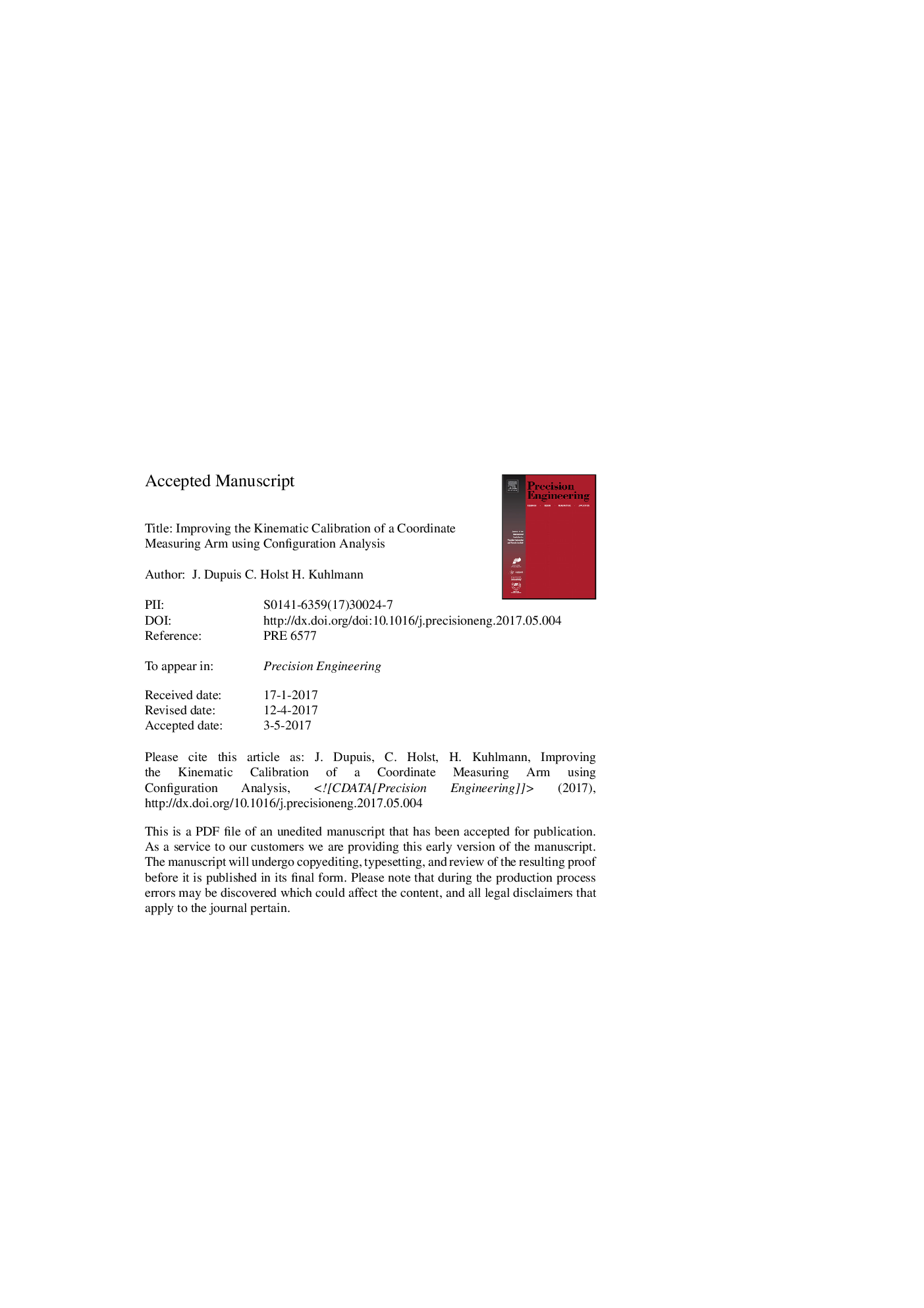| Article ID | Journal | Published Year | Pages | File Type |
|---|---|---|---|---|
| 5019036 | Precision Engineering | 2017 | 39 Pages |
Abstract
Portable coordinate measuring arms (CMA) represent a special class of coordinate measuring machines providing high accuracy combined with high flexibility. To obtain high accurate and reliable 3D coordinates, the kinematic model has to represent precisely the mechanical construction of the CMA. Thus, a reliable and accurate calibration is essential to preserve the CMA's accuracy. However, due to its redundant characteristics, estimating the kinematic parameters has to deal with linear dependencies and, therefore, with rank deficiencies. A profound statistical analysis of the existing calibration approaches has not yet been performed. For this reason, this paper introduces an innovative and replicable least-squares calibration approach based on the general case of adjustment (GauÃ-Helmert model). This rigorous optimization procedure integrates the original observations and enables a statistical evaluation of the estimated parameters as well as of each observation, based on the configuration analysis. The applicability of the approach is proofed using simulated and real measuring data. Thanks to the configuration analysis and supported by experimental results, it is shown that an accurate solution of the calibration can be obtained using measurements only located in a small part of the workspace.
Keywords
Related Topics
Physical Sciences and Engineering
Engineering
Industrial and Manufacturing Engineering
Authors
J. Dupuis, C. Holst, H. Kuhlmann,
